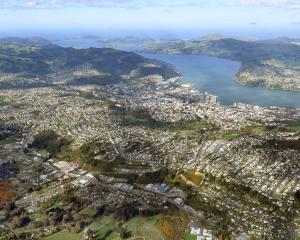
The Government should hit the brakes on Three Waters reforms, which have been poorly pitched and rushed, Dunedin councillors say.
The Dunedin City Council yesterday approved a comprehensive submission to the Government covering concerns that range from doubt local influence in decision-making will be adequate to ongoing frustration about lack of detail.
Cr Sophie Barker likened the Water Services Entities Bill to the tip of an iceberg in a sea of uncertainty.
Reform was travelling too quickly and too confidently into quite dangerous territory, she said.
Councillors were united in calling for the Government to hit the pause button and they proposed an Otago-Southland water entity as an alternative to the plan to set up an entity covering much of the South Island.
The Government proposes to establish four water entities that would take over functions from councils, arguing economies of scale would enable much-needed investment to happen.
Several councillors were worried about the scale of upheaval, especially when uncertainty was heightened by other significant reform, such as of resource management.
Cr Andrew Whiley said that the Government should pause, listen and engage with the community.
Cr Lee Vandervis, the only person to vote against the council’s submission, went further.
"I believe that the legislating theft of our $3 billion water assets should not be paused. It should be stopped."
Dunedin Mayor Aaron Hawkins said the Government’s sweeping reform agenda had been poorly co-ordinated and poorly communicated, Cr David Benson-Pope said water reform had been ill-conceived from the beginning and Cr Vandervis highlighted problematic government promotional material.
Cr Benson-Pope and Cr Steve Walker were worried about implications from reform for land-use planning and lack of information about such things as water charges.
Cr Rachel Elder suggested an Otago-Southland model could be a better fit with the way planning worked in other fields, such as transport.
Councillors have generally accepted the need for reform, but they have been divided over how strident they should be in opposing aspects of the Government’s favoured approach.
Cr Jim O’Malley said there had been some talk of it being better to be of some influence inside the tent, than outside it.
"There’s no point being in the tent if there’s a machinegun under the front table," he said.
Cr O’Malley doubted the Government was interested in dialogue.
"We need to be more strident in our opposition," he said.
"Just merely being upset is not enough."
Cr Carmen Houlahan said she was shocked by the Government’s devotion to centralisation.
"Local knowledge needs to stay here," Cr Houlahan said.
Decisions about local infrastructure should be made by local people, she said.
Mr Hawkins said some opposition to reform had been expressed badly, and racism and misogyny had been evident.
The tenor of some discussion "stopped us from having a grown-up conversation" about how problems could be tackled and how the scale of investment challenges could be met.
Mr Hawkins said transitional arrangements, which could result in city council staff being seconded by a government unit to prepare for operation of the planned entities, seemed onerous.
Cr Mike Lord said government reforms in sectors that ranged from electricity to postal services had not turned out well.
"The last thing I want is central government controlling and regulating our water," he said.












